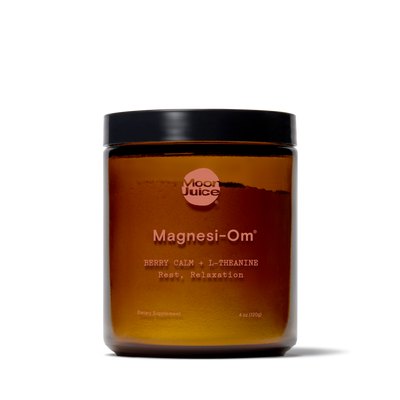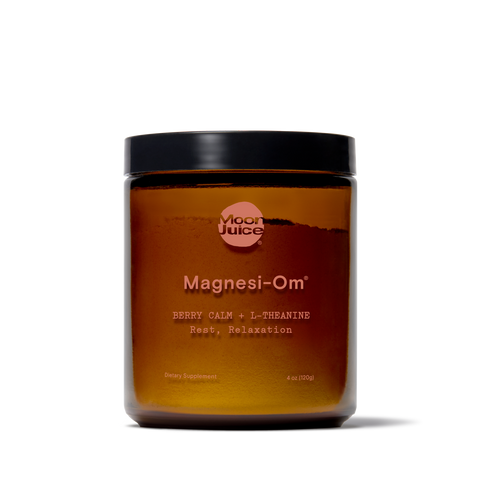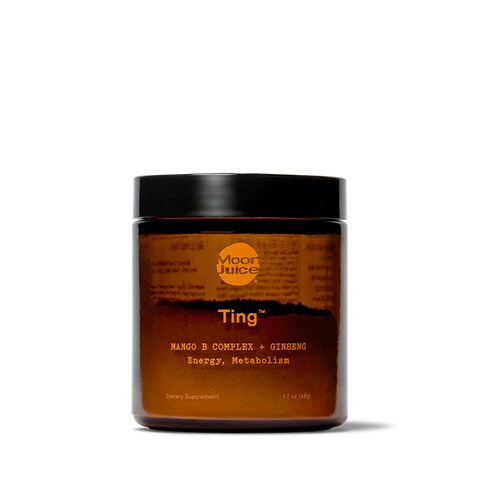Electrolytes are vitally important for everyone, not just athletes. Whether you’ve been sweating beads on the basketball court or not, maintaining a balance of these essential minerals is necessary for us to function at our peak, and the benefits of electrolytes extend beyond just replenishing hydration.
If you’ve been wondering whether some of the best electrolyte drinks are actually good for you or just another sugary drink, know that not all hydration beverages are created the same. Keep reading to find out some surprising benefits of electrolytes.
Are Electrolyte Drinks Good For You?
If only staying hydrated were as easy as chugging regular drinking water. Your body needs more than just H20 to maintain proper hydration. It relies on certain charged minerals known as electrolytes to regulate the balance of fluids in and out of your cells through a process known as osmosis.
These minerals, which include
Potassium, Sodium, Magnesium, and Phosphorus, carry an electric charge throughout your body that allows cells to communicate with each other and carry out their jobs, from muscle contraction to nerve function.
Electrolytes aren’t just good for you, they’re crucial for your survival, and it’s important to keep them in balance in your body.
Benefits of Drinking Electrolytes
Electrolytes are famous for their hydration benefits. Sodium and Potassium work in tandem to balance cellular fluid levels by signaling how much water to hold and how much to flush out. But they’re also responsible for many other functions in the body and can give you benefits beyond just quenching your thirst. Here are some of the many benefits of drinking electrolytes.
1. Cellular communication
Back to science class for a second. Our bodies are electrical systems, and we need electrolytes to harness charges. When these minerals dissolve in regular water, they produce charged ions, and an influx of these ions helps conduct the electrical signals throughout your body that are needed for cellular communications and functions. Without Sodium, for instance, the brain wouldn’t be able to initiate the electrochemical impulses your nerve cells need in order to communicate.
2. Brain health
Because of this, an electrolyte supplement can be helpful for brain health and cognition if you’re experiencing a deficiency in these minerals. To use an analogy, if your body is like a house, you need electrolytes and minerals as the power cords and wires that turn direct electricity and turn on the lights. If you think of your brain as the circuit breaker, it requires electrolytes in order to do its job of communicating with the rest of the body.
3. Exercise enhancement
Because we excrete electrolytes like Sodium, Chloride, and Potassium when we perspire, it’s important for athletes and anyone working out heavily or for over one hour to replenish electrolytes. Sodium, in particular helps stimulate fluid intake and retention in your system. Potassium also helps with protein and carbohydrate synthesis to keep you fueled during a workout.
Studies have also linked cramps to salt loss, so try to make sure you get between 1.7-2.9 grams of salt during any heavy bouts of intense exercise.
4. Muscle health
Electrolytes are necessary for muscle function and contraction, so if you’re feeling like your muscles are weak, you are experiencing muscle cramping, or having spasms, a deficiency of Potassium, Calcium, or Magnesium could be to blame. Essentially, our nerves send electrical impulses to the muscles to signal your muscles to contract. Any time you use your muscles, whether chewing or walking, it’s these electrical signals that are sparking the movement.
5. Recovery support
If you’ve been sick and have lost a lot of fluids, it’s also important to replenish your electrolytes, along with plenty of regular drinking water, to restore proper hydration. Electrolytes also play an important role in immunity, as Potassium, Sodium, Calcium, and Chloride all work in concert to help your body destroy unneeded or abnormal cells that could potentially cause mutations.
After an injury or surgery, electrolytes can help you repair damaged tissues. In fact, a certain balance of electrolytes must be present in order for healing to begin.
It’s why surgical patients often have IV (intravenous) fluids delivering electrolytes in the lead-up to, during, and after surgical procedures. Calcium, for instance, assists in muscle repair along with blood clotting and bone health.
6. Travel ease
Did you know that when you’re experiencing jet lag, much of that likely has to do with being dehydrated from travel? When we fly, it’s easy to lose hydration, whether from dry air in planes, minimal water intake, or other reasons. By staying hydrated ahead of and during your travels with electrolytes, you can make travel easier on your system.
7. Heat protection
Being dehydrated can put you at higher risk of experiencing heat stroke, since your blood volume can rapidly decrease after losing fluids. Whether you’re running in the heat or traveling to a hot climate without AC, it’s crucial to consume fluids and electrolytes to help you stay cool and help lessen the risk of heat exhaustion.
8. Breastfeeding milk supply
Nursing moms need to stay plenty hydrated, since the milk they’re feeding their newborns is 87% water. Talk to your health care practitioner about adding a natural homemade electrolyte drink to your rotation to help you stay hydrated throughout your lactation period. Just be sure to choose one without caffeine or junk ingredients like artificial sweeteners.
9. Energy increase
The mitochondria in your cells need Sodium and Magnesium to help convert food into cellular energy, known as ATP. These charged ions send electrical signals to metabolize the energy that’s stored. So while you might not feel a buzz after drinking electrolytes, know that these essential minerals in balance are crucial for helping you generate the energy you need to get through the day.
10. Glucose metabolization
When this happens, and cells create energy in the mitochondria, Potassium channels signal to the body to start producing insulin in response. And because insulin is a hormone that regulates your glucose levels, supplementing Potassium in your diet has the potential to help lower your blood sugar as well.
11. Natural lubrication
Our bodies need to stay juicy in order to create natural lubrication. Healthy hydration helps keep water within the body’s tissues (including vaginal tissues) to support a lubricated environment when you need it. Not to mention, dehydration down there can lead to itching, pH imbalance, and a higher likelihood of yeast infections. Staying balanced with electrolytes will help your body regulate its internal fluids, and that’s a good thing.
12. Nerve function
Electrolytes are critically important for generating and conducting “action potentials” in the nerves. Potassium, as the main intracellular electrolyte, is vital for the transmission of nerve impulses. Calcium ions are also essential for signal transduction and neurotransmitter release within the nervous system.
13. Blood pressure regulation
You need balanced, healthy electrolyte levels in order to regulate blood pressure. Sometimes these electrolytes need to work together. For instance, even though Sodium can elevate blood pressure, Potassium helps balance Sodium levels in the body and can lower blood pressure. It’s important for your electrolytes to stay in balance, neither too high or too low, in order for your system to function correctly.
14. Hangover help
You’re probably aware by now that alcohol is a diuretic. Because you tend to pee out more fluids when you drink, it can be helpful to restore electrolytes and fluids in order to lessen the negative effects after a big night out. In fact, the morning after drinking is one of the best times to drink electrolytes.
15. PH balance
Electrolytes, specifically Chloride, can help you maintain normal pH, or acidity, in your bodily fluids. The natural pH in human blood sits between 7.36 and 7.44, and when this level is thrown off to skew more acidic or alkaline, you could experience symptoms like headaches, fatigue, and a slower heart rate.
16. Sleep quality
Magnesium is a powerful natural sleep aid that’s known to help support deeper, more restful sleep. It works with your parasympathetic nervous system to regulate your production of melatonin, or the hormone responsible for helping you fall asleep faster. And because most Americans are actually deficient in this mineral, a Magnesium powder supplement is likely required to meet your needs.
17. Heartbeat regulation
Don’t forget that the heart is a muscle, too. Just like you need electrolytes to help your muscles contract, you need electrolytes to have a healthy heartbeat. One symptom of not getting enough electrolytes might be an irregular heartbeat, so it’s something to watch out for.
Takeaways
Electrolytes have so many benefits throughout the body, and it’s not all just about hydration. These minerals are critically important for aspects of health, from sleep quality to heartbeat regularity to muscle movement. And these electrolytes need to be in balance so they can work together the way they’re supposed to.
It’s possible to get too little or too much of a certain electrolyte. For instance, if you consume lots of processed foods, it’s likely that your Sodium levels are a little high, while certain other minerals might be low. And Potassium helps regulate your Sodium levels, so this is just one example of how these minerals work together. Because our modern food supply is often depleted in minerals due to agricultural practices like monocropping, we’re likely not getting all the electrolytes we need from food alone.
Mini Dew™ is one way to ensure you’re getting the benefits of electrolytes each day. Shown to help promote optimal osmotic balance between and inside cells, it’s a natural electrolyte drink powder with ionic trace minerals to support your body’s hydration and brain function.*
Taking an electrolyte drink every day, or especially when you’ve been losing body fluids, can be an important step in helping you maintain overall health and cellular harmony in your body.

Sources
- National Library of Medicine, Electrolytes https://www.ncbi.nlm.nih.gov/books/NBK541123/#:~:text=Electrolytes%20are%20essential%20for%20basic,calcium%2C%20phosphate%2C%20and%20bicarbonates
- DeCoster MA. Calcium dynamics in the central nervous system. Adv Neuroimmunol. 1995;5(3):233-9. doi: 10.1016/0960-5428(95)00015-t. PMID: 8748068. https://pubmed.ncbi.nlm.nih.gov/8748068/#:~:text=Calcium%20ions%20are%20critically%20important,release%20to%20intracellular%20signal%20transduction
- Artem Kondratskyi, Kateryna Kondratska, Roman Skryma, Natalia Prevarskaya, Ion channels in the regulation of apoptosis, Biochimica et Biophysica Acta (BBA) - Biomembranes, Volume 1848, Issue 10, Part B, 2015, Pages 2532-2546, ISSN 0005-2736, https://doi.org/10.1016/j.bbamem.2014.10.030. https://www.sciencedirect.com/science/article/pii/S0005273614003654?via%3Dihub
- Barmore W, Bajwa T, Burns B. Biochemistry, Clotting Factors. [Updated 2023 Feb 24]. In: StatPearls [Internet]. Treasure Island (FL): StatPearls Publishing; 2023 Jan-. Available from: https://www.ncbi.nlm.nih.gov/books/NBK507850/
- Lopez MJ, Hall CA. Physiology, Osmosis. [Updated 2023 Mar 13]. In: StatPearls [Internet]. Treasure Island (FL): StatPearls Publishing; 2023 Jan-. Available from: https://www.ncbi.nlm.nih.gov/books/NBK557609/
- Taylor and Francis Online, Application of evidence-based recommendations for heat acclimation: Individual and team sport perspectives https://www.tandfonline.com/doi/full/10.1080/23328940.2018.1516537













